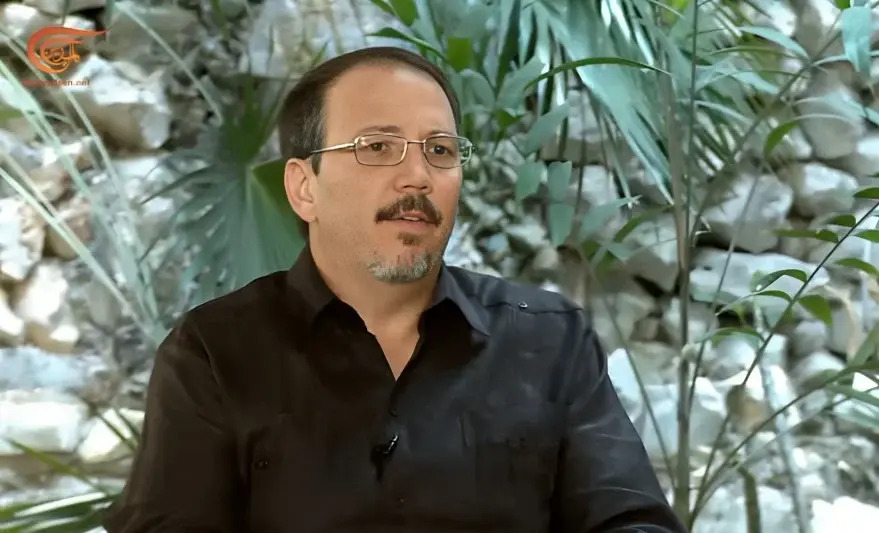PUBLIC ACCOUNTS
Government makes risky bet with new tax hike decree

Finance Minister Fernando Haddad (left) stood before the House’s Tax and Oversight Committee — but his hearing was interrupted after he was heckled by far-right lawmakers. Photo: Lula Marques/EBC
Facing mounting fiscal pressure and political deadlock, the government issued a provisional decree late Wednesday night in a last-ditch effort to patch gaping holes in the country’s public accounts. The measure seeks to raise billions through new taxes and spending caps, even as Congress signals it may torpedo the initiative altogether.
The decree arrives with Finance Minister Fernando Haddad pressed to deliver fiscal results without the political support (including from within the government) to pass spending cuts. With Congress reluctant to approve any significant revenue increases — and even less inclined to discuss structural spending cuts — the government finds itself in a bind.
Among the most contentious measures in the decree is the unification of capital gains tax rates at 17.5% and a new 5% tax on previously exempt financial instruments, including agribusiness and real estate credit bonds (LCAs and LCIs) and infrastructure debentures. In addition:
Compensation loopholes used by companies to reduce tax burdens will be restricted, a move expected to raise BRL 10 billion in 2025 alone;
The tax on fixed-odds sports betting revenue rises from 12% to 18%;
The CSLL (social contribution on net profits) rate for fintechs will increase, eliminating their preferential 9% rate;
The tax on interest on net equity (JCP), a key mechanism for corporate funding, will rise from 15% to 20%.
The decree also attempts to show goodwill on the spending side: it caps disability benefits granted through Atestmed, limits social insurance transfers to states, and incorporates the BRL 12-billion Pé-de-Meia education program into the mandatory minimum share of education spending.
Yet, as analysts noted, many of these cost-containment measures lack clear projections. The decree also adds payroll costs, converting 1,800 public servant roles to higher-paying classifications at a cost of BRL 7 million this year alone.
👉 Why it matters. Defending the tax plan, Haddad said that the market backlash smacked of penthouse residents refusing to pay condo fees. Rodrigo Maia, a former House speaker and the current president of the National Confederation of Financial Institutions, shot back: “The government has chosen confrontation and will lose.” Echoing Haddad’s metaphor, Maia said the move was “like jumping off a penthouse without a parachute.”
Fiscal analysts say the government’s math may be wishful thinking — and lawmakers have already balked at the plan. Even allies, like the right-wing União Brasil party, went on the record to denounce the proposal as a tax-heavy strategy that unfairly burdens producers and consumers. “Each new hole in the federal budget seems to bring with it a familiar response: higher taxes,” said União Brasil’s chairman, Antônio Rueda.
As we have explained on multiple occasions, Congress’s austerity push is deeply disingenuous — to say the very least. Amid debates over spending cuts, House Speaker Hugo Motta has sponsored a bill that would essentially hike lawmakers’ pay by allowing them to simultaneously receive retirement benefits and full congressional salaries.
The real crisis lies in the breakdown of coordination among Brazil’s institutions. The executive branch, hemmed in by a fragmented Congress, is trying to tax its way out of a budget hole that lawmakers refuse to help close — unless the solution includes sweeping cuts to politically sensitive areas such as public sector salaries and minimum health and education spending. Meanwhile, lawmakers cling to their own privilege of spending through opaque budget earmarks.
Haddad, once seen as a bridge between the government and the markets, is now increasingly isolated.
The result is gridlock. Everyone wants their slice, but no one wants to pay for the full pie. Without structural reform, a near-impossibility this close to an electoral cycle, Brazil is sleepwalking into a fiscal wall.
PUBLIC ACCOUNTS
Government makes risky bet with new tax hike decree

Finance Minister Fernando Haddad (left) stood before the House’s Tax and Oversight Committee — but his hearing was interrupted after he was heckled by far-right lawmakers. Photo: Lula Marques/EBC
Facing mounting fiscal pressure and political deadlock, the government issued a provisional decree late Wednesday night in a last-ditch effort to patch gaping holes in the country’s public accounts. The measure seeks to raise billions through new taxes and spending caps, even as Congress signals it may torpedo the initiative altogether.
The decree arrives with Finance Minister Fernando Haddad pressed to deliver fiscal results without the political support (including from within the government) to pass spending cuts. With Congress reluctant to approve any significant revenue increases — and even less inclined to discuss structural spending cuts — the government finds itself in a bind…

🔒 This was a free preview; the rest is behind our paywall
Don’t miss out! Upgrade to unlock full access. The process takes only seconds with Apple Pay or Stripe. Become a member.

Why you should subscribe
We’re here for readers who want to truly understand Brazil and Latin America — a region too often ignored or misrepresented by the international media.
Since 2017, our reporting has been powered by paid subscribers. They’re the reason we can keep a full-time team of 10 journalists across Brazil and Argentina, delivering sharp, independent coverage every day.
If you value our work, subscribing is the best way to keep it going — and growing.
Our annual plan goes for just USD 0.52 a day — but the value you'll get back from it is truly immeasurable. So… what’s stopping you from joining right now?








